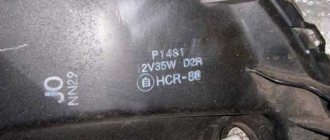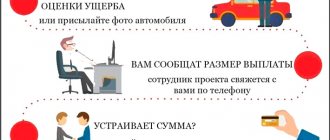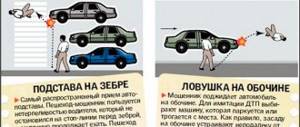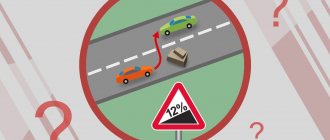- 1. What law governs communication with the police?
- 2. Does a traffic police officer have the right to stop pedestrians? 2.1. Must the employee give a reason for the stop?
- 3.1. If the pedestrian does not have a passport with him
- 4.1. Does an employee have the right to demand to get out of the car?
Checking documents of car passengers and the rules for stopping pedestrians by police officers in 2021 are as precisely regulated by law as communication with the traffic police of vehicle drivers. And this topic has its own subtleties, the responsibilities of pedestrians and persons in the car, as well as the risk of the most severe penalties for failure to comply with the legal requirements of inspectors. In the article we will consider all the framework of the legality of the requirements of employees to this category of citizens, what they can and what is prohibited by both, and other aspects of the issue under discussion.
What law governs communication with the police?
There are several such legal acts, and not all of them are formally considered laws. The rules for stopping and checking documents of pedestrians and car passengers are regulated by:
- The Federal Law “On Police”, which establishes the basic principles of the legality and legality of the actions of inspectors,
- Administrative regulations introduced by Order No. 664, which already prescribes all the rules for communicating with the police,
- Traffic rules and other legal acts regulating the obligations, rights and prohibitions for pedestrians and passengers.
And to understand what an employee has a right and what is prohibited, one must take into account that the main areas of police activity are:
- protecting the security and interests of both citizens and the state,
- regulation of traffic and regime in certain situations,
- application of administrative and criminal procedures (issuing fines, delivery to the police department, detention, etc.).
So, let's look point by point directly at the rules of communication between pedestrians and vehicle passengers with the traffic police and other departments of the authorities!
You will also be interested in:
- Is it legal for a traffic police inspector to demand that he get out of the car?
- How long can a traffic police officer detain a driver after stopping?
- Is it possible to post videos of traffic police officers on the Internet?
Traffic police inspector
All traffic police officers who have a special device can check the tint.
The main requirement for the device is the presence of a certificate and verification document. All traffic police officers who have a special device can check the tint. The main requirement for the device is the presence of a certificate and verification document.
A traffic police inspector does not have the right to stop a car where traffic rules prohibit it
- it’s true .
Clause 66 of the Regulations prohibits a traffic police inspector from stopping a car where stopping is prohibited by traffic rules.
As an exception, a stop is allowed if it is necessary to suppress a crime, administrative offense, or carry out administrative and regulatory actions.
There is one more option for the inspector. To stop cars under a prohibiting sign, the inspector can mark the stopping place with a service vehicle with flashing lights on or fence off a section of the roadway with cones.
After being stopped by an inspector, you don’t need to get out of the car
- it’s true .
I remember, as soon as I received a driver’s license (this was back in 1994), every time the car was stopped by the traffic police, I ran out to meet the inspector. I was sure that this was necessary.
Does a traffic police officer have the right to stop pedestrians?
Yes, it has. This right to the inspector is given by the Administrative Regulations as amended in 2021, introduced by Order No. 664, in paragraph 31, which directly states that stopping pedestrians is among the administrative functions for supervising safety.
But this does not mean that an officer can stop a pedestrian without reason. For example, just find out how the other person is doing, whether he has been drinking alcohol, or point out his careless appearance. There is a clear list of grounds for requiring a pedestrian to stop, similar to a vehicle:
- if the pedestrian violated traffic rules,
- it is required to involve him as a witness or attesting witness,
- if this is necessary to regulate traffic (for example, an ambulance is passing by, and for this reason it is necessary to stop pedestrians from crossing their green traffic light).
Only these 3 points cause a pedestrian to stop.
Must the employee give a reason for the stop?
Yes. And before that, introduce yourself. And if a pedestrian is involved as a witness or witness, then the officer is obliged to explain Article 51 of the Constitution and 25.1 of the Code of Administrative Offenses about the right to get acquainted with the case materials and not testify against one’s immediate relatives.
At the same time, the Regulations prescribe to the inspector exactly how he must present himself (clause 45 of the regulations). He must say:
- your full name,
- job title,
- rank.
As for the reason for the stop, it must be stated regardless of whether the pedestrian asked for an explanation or not.
The inspector is also obliged to show the pedestrian his official ID, but this is at the request of the citizen.
If a police officer suspects you of violating traffic rules, then he is obliged to explain what exactly you violated.
Further, depending on the situation, the pedestrian may be subject to other measures of enforcement or punishment, which we described in detail in separate articles:
- as a witness or attesting witness,
- for inspection,
- for detention (grounds for detention in the Law “On Police”)
All of the above stopping rules are regulated by paragraphs 101-105 of the regulations.
To get out of the car or not
If you are stopped by a traffic police inspector, you have the right to communicate with him without leaving your vehicle. The inspector may offer to leave in the following cases:
- To conduct a search or inspection of a vehicle and/or transported cargo.
- If it is necessary for the driver to participate in procedural actions (for example, as a witness).
- If it is necessary to eliminate technical faults in the vehicle.
- To carry out, in the presence of the driver, a reconciliation of license plate units with the information specified in the documents.
- If the driver shows signs of intoxication or illness.
- If the driver’s behavior poses a threat to the personal safety of the traffic police inspector.
Very often, traffic police inspectors ask you to open the trunk of a car, which falls under the category of vehicle inspection. If the inspector is interested, he can look through the windows into the car's interior or check the engine numbers with the documents. But if he decided to check everything thoroughly, then he should pay attention to the main points:
- Firstly, the search is carried out with the mandatory participation of 2 witnesses and the drawing up of a protocol. It would be useful to keep a video recording of all actions of the traffic police inspector during the inspection.
- Secondly, an inspection of a vehicle is an examination of it without violating its structural integrity. This means that the traffic police inspector cannot arbitrarily shift things or pull them out of the car without your participation. All these actions can only be carried out by you. If suddenly an inspector asks to show the contents of a purse or other personal belongings, then these actions are qualified as a personal search and are possible only with the appropriate sanction.
- Thirdly, not any car can be inspected, but only one in respect of which he has suspicions about the presence of instruments of a crime or objects of an administrative offense.
Checking documents of a pedestrian
It is also regulated by Order No. 664 (more precisely, its regulations), it requires grounds, and the procedure for checking documents is prescribed in precise instructions.
Reasons for checking documents include:
- suspected violation of traffic rules by a pedestrian,
- presence of signs of passport forgery,
- orientations or reasonable reasons to believe that this particular pedestrian is wanted,
- if it is necessary to involve a pedestrian as a witness or witness.
If the pedestrian does not have a passport with him
In this case, a twofold controversial situation arises:
- on the one hand, not a single law stipulates the obligation of pedestrians to carry an identity card with them and present it to the inspector,
- on the other hand, the inspector is given the right to check passports (clause 6.2 of the regulations) and demand them from pedestrians (clause 103), and on the basis of part 1 of article 27.3 of the Code of Administrative Offenses; if a pedestrian violated traffic rules, then the officer is obliged to detain him to determine his identity, as this is required for a comprehensive consideration of the case (the case cannot be considered without identifying the violator).
Thus, even in the absence of an obligation to carry and present a passport for verification, a pedestrian who violates traffic rules or other rules of the law, and if he does not have this document with him, has the right to be taken to the department for detention. Therefore, it is better to always have your ID with you.
Can an inspector demand documents from a passenger?
Yes maybe. Clause 5 of the regulations of Order No. 664 gives a police officer the right to exercise supervision, including over passengers. This means that he can address them and has power over them (in terms of executive functions).
Checking passengers' documents is possible only in 4 cases:
- if it is necessary to involve a passenger in helping other road users (clause 84.10),
- if there are reasonable grounds to believe that the passenger is wanted (clause 84.14),
- if there are reasonable grounds to believe that the passenger has committed a traffic violation (for example, if you are not wearing a seat belt) or a crime (clause 84.14),
- if it is necessary to involve you as a witness or attesting witness (clause 89).
If a car is stopped and you are brought in as a witness or witness, the traffic police inspector is also obliged to explain Article 51 of the Constitution and 25.1 of the Code of Administrative Offenses about the right to familiarize yourself with the case materials and not testify against your immediate family.
Something else useful for you:
- Orders No. 185 and No. 664 - what changes have been made to the regulations?
- Changes to Order 664 - new rules for stopping drivers and checking documents
- Is the driver required to get into a company car under the new Order No. 664?
Does an employee have the right to demand to get out of the car?
Yes, and there can only be 3 legitimate reasons for this:
- if an inspection of a vehicle is planned (an inspection protocol has been drawn up) - it begins only when all passengers and the driver get out of the car - clause 207 of the regulations,
- if it is necessary to send the passenger for a medical examination, and this, in turn, is possible only if the passenger has committed a traffic violation or a crime that resulted in harm to the health or death of someone (clause 242),
- evacuation of a car to an impound lot - a car cannot be evacuated with people inside.
The inspector does not have the right to demand that a passenger get out of the car if he simply needs to draw up case materials against him: a protocol or issue a fine. The employee himself can provide these documents for signature, and the presence of the person when compiling the material according to the 2021 law is not necessary.
For what reasons can they stop?
The reasons for the stop are regulated by clause 84 of Order No. 664.
According to it, a driver can be legally stopped in several cases:
- Traffic violation. Even for a minor violation, the inspector has the right to stop the car owner. For this, visual recording of the offense is sufficient, but technical means can also be used. A protocol is immediately drawn up on the spot with details for paying the fine, or a warning is issued.
- If there is an indication indicating the possible involvement of the driver or citizens sitting in the passenger compartment in an offense or crime. It can be given to the inspector in writing (they are usually issued at the “divorce”), or communicated by phone or walkie-talkie. The duty officer conveys verbal information about the search for a specific vehicle.
- If it is reasonably assumed that the car is being used illegally: stolen, the driver is drunk, the car is wanted. Information can come in the form of written or oral guidance, information from citizens, other units, police departments).
- Interviewing citizens as eyewitnesses of an accident, other violation or crime, if they are eyewitnesses.
- If you need help from witnesses.
- If you need to use a car in accordance with clause 37, part 1, art. 13 Federal Law “On Police”: to catch a criminal, deliver another person to a hospital for emergency medical care, travel to the scene of a crime or offense. This happens in exceptional cases. All damage caused to the driver and expenses incurred at his request are reimbursed by the department.
- If movement is temporarily prohibited or restricted. This often happens when a road is blocked due to a major accident or repair work.
- If you need to organize unhindered passage of special transport.
- If the car owner's assistance is required in assisting other people, inspectors.
- Conducting special raids to identify offenses based on orders from the heads of territorial divisions.
- Incorrect installation or malfunction of technical means of traffic management, violation of the rules for carrying out repair work on the roadway; accidents, fires and other emergencies that pose a threat to the life and health of citizens.
- Checking the passports of car owners and everyone sitting in the cabin, if there is reason to believe that they have become participants in a crime.
- Checking the driver's license, documents for the transported cargo or the car itself.
People can be stopped to check documents, and no additional grounds are needed.
This right is specified in clause 84.13 of Order No. 664. The inspector may point the driver to the stopping place and ask for a driver's license, compulsory motor vehicle liability insurance or STS. If we are talking about checking passports, we need reasons (orientation, suspicion of fleeing the scene of an accident or crime). This is stated in paragraph 84.14 of Order No. 664. Important! Previously, based on Order No. 185, stopping outside stationary posts was prohibited. Now this rule has been canceled, and they can stop anywhere, but in compliance with the updated regulations.
What are the penalties for pedestrians and passengers?
In general, for any violation of traffic rules by a pedestrian or passenger in the context of their participation in the process of road traffic, a single fine is provided - only 500 rubles, which can also be paid at a discount within 20 days from the date it is issued. The fine is provided for in Part 1 of Article 12.29 of the Administrative Code.
But there is a more severe sanction - for refusing a lawful request of a police officer, you can be booked under Part 1 of Article 20.25 of the Administrative Code, and for this the maximum punishment is administrative arrest for up to 15 days.
And the last punishment can be applied if the employee refuses to comply with the legal requirement:
- present documents for verification,
- do not stop at his request.
What will the inspector do if a fault is found?
He will charge the driver under Part 1 of Article 12.5 of the Code of Administrative Offenses with a fine of 500 rubles, and he will be released on all fours, since the malfunction was discovered on the way. But this approach of inspectors to punishment for malfunctions does not meet the requirements of the law.
If the driver checked the condition of the car before leaving, then there can be no claims against him.
- Firstly, when leaving the parking lot, he did not know that a malfunction would occur on the way, and could not have known. That is, the driver’s actions are not to blame.
- And if the driver discovers a malfunction on the road, then, in accordance with the traffic rules, he can move to the place of parking or repair. That is, going to a car repair shop or to your home after discovering a malfunction along the way does not constitute an offense at all.
The most striking example is a burnt-out light bulb in a headlight. If the driver checked the functionality of the headlight before leaving the parking lot, and the light bulb burned out on the road, then there is no reason to punish the driver when driving to the parking lot or repair site.
Another example is a headlight broken in an accident. You can drive to a parking lot or repair site with a broken headlight, but driving around the city the very next day with faulty optics is prohibited. And since the malfunction did not occur on the road, the driver can only call a tow truck or go buy a new headlight and replace it on the spot.
Something else useful for you:
- Communication with the traffic police: what to read to improve legal literacy?
- Can an inspector issue two or more fines?
- A prescription for tinting - how legal is it and can they get arrested for it?








